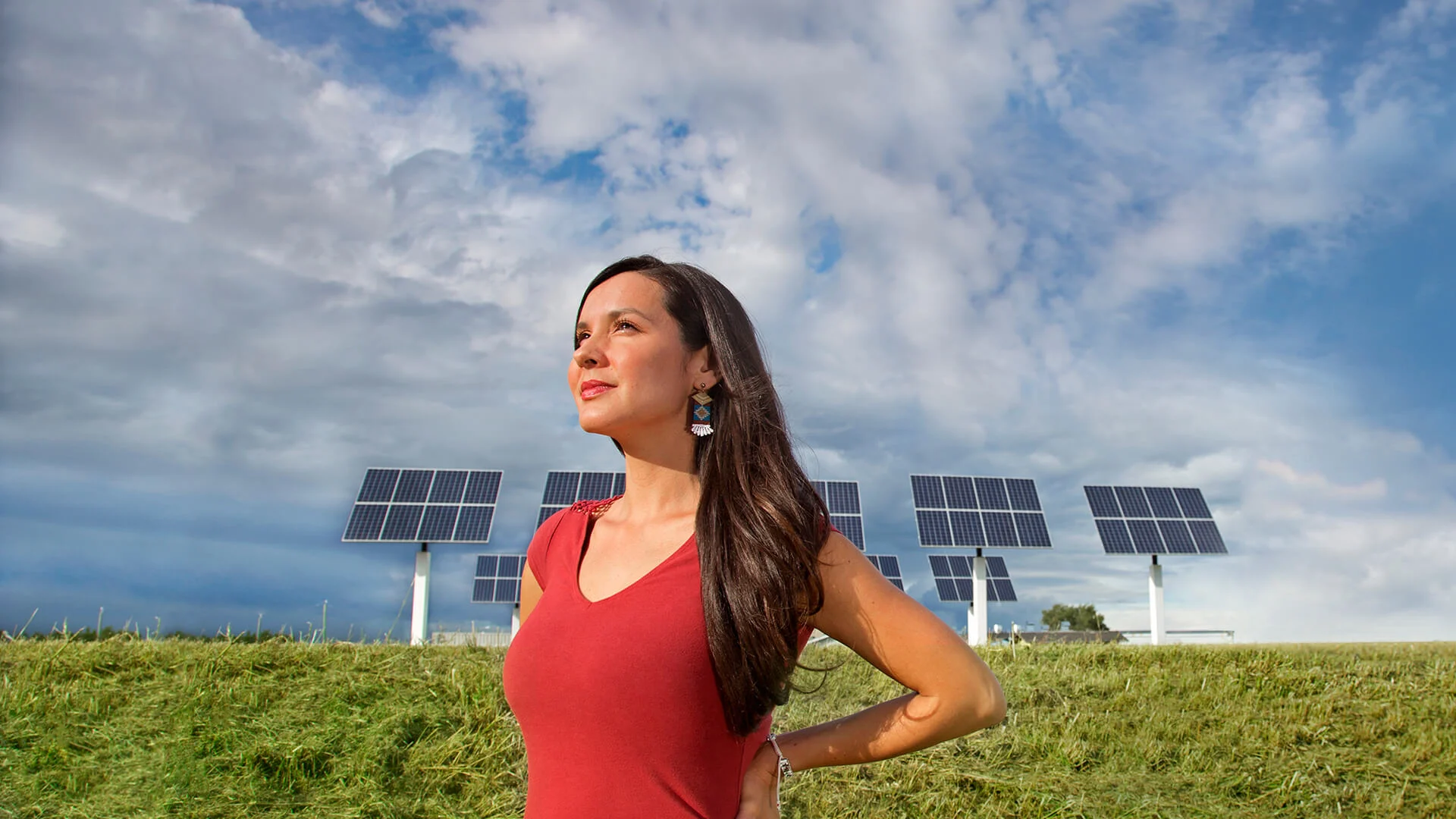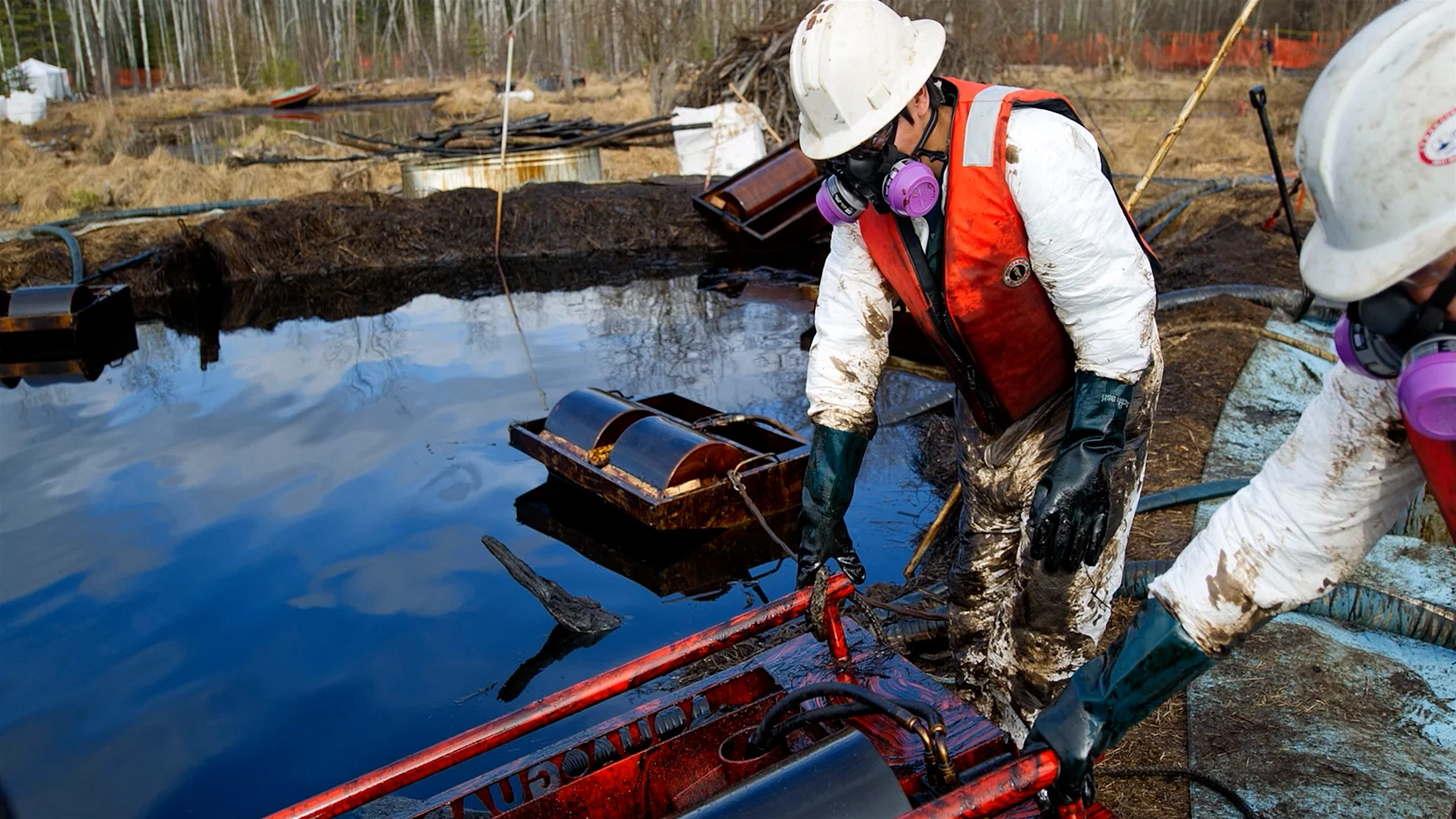
Power to the People: A path forward out of the climate crisis
The Weather Network is showcasing this documentary series exploring the renewable energy revolution empowering Indigenous communities across Canada.
A low carbon future is possible through self-determination.
That’s the central message emanating from the documentary series entitled Power to the People. It follows climate advocate Melina Laboucan-Massimo across Canada as she visits Indigenous communities revolutionizing the clean energy transition in response to the climate crisis.
That rationale for optimism is because these solutions already exist, according to Laboucan-Massimo who hosts the 13-part episodic series on how Indigenous communities use renewable energy initiatives involving wind, solar, tidal, biomass, and geothermal to generate their own independent power.
From her traditional homelands in Little Buffalo, Alta., Laboucan-Massimo knows all too well the consequences of fossil fuel extraction, as Episode 1 examines through a first-hand account of an oil spill.
“The community wasn’t even told of the immensity of this spill until five days after … so I set out to find a helicopter to at least fly over so we could take pictures from the air. We wrote up a press release and every major media outlet in Canada came because it was one of the biggest oil spills in Canada’s history.”

28,000 barrels of crude oil — 4.5 million litres – stained the land and rivers close to Laboucan-Massimo’s community near Little Buffalo, Alta. (Power to the People)
But Laboucan-Massimo — and the series — don’t linger on the past for long. There’s too many success stories to focus on instead.
Net-zero housing, run-of-river hydroelectric projects, and green transportation initiatives are uncovered in Power to the People, among other solution stories that set the course towards energy autonomy — all being shaped by Indigenous values, cultures, and communities.
“We need to be the leaders in our own projects,” said Laboucan-Massimo.
What she means is that at the crux of the climate crisis is the need to paint a picture of the path forward. Power to the People does just that. Watch all of the episodes below.
Episode 1: Little Buffalo Growing up in the Lubicon Lake Band in Little Buffalo, Alta., Melina Laboucan-Massimo has experienced the detrimental effects of oilsands extraction. Today it has made her one of Canada’s leading climate change campaigners and the host of Power to the People. View the episode here.
Episode 2: Gull Bay For some remote Indigenous communities north of Thunder Bay, connecting to the Ontario hydro grid will never be a reality. Gull Bay First Nation found the means to create their own "microgrid" using solar energy to offset their use of diesel power. View the episode here.
Episode 3: Atlin There are roughly 300 off-grid Indigenous communities across Canada who continue to rely on diesel-generated power. The Taku River Tlingit Nation in northern B.C. is one of the few First Nations who have successfully replaced diesel power through their implementation of clean renewable energy. View the episode here.
Episode 4: Six Nations Home to the largest First Nations population in Canada, Six Nations of the Grand River established a corporation to manage economic opportunities on behalf of their people. That effort now sees Six Nations invested in some of the largest wind and solar power plants across the country. View the episode here.
Episode 5: Haida Gwaii Surrounded by the Pacific Ocean and off the BC Hydro grid, the Haida Nation relies on diesel generators to power their communities. Now a homegrown group is looking to the wind, sun, and sea to offset their reliance on fossil fuels. View the episode here.
Episode 6: Tofino Geothermal energy is generated by heat stored below the earth’s surface. The Tla-o-qui-aht Nation is harnessing this renewable energy through a geoexchange system to cost effectively heat and cool their homes and buildings. View the episode here.
Episode 7: Kluane Long before the inception of one of Canada’s most picturesque national parks, this remote part of the Yukon was the ancestral home of the Kluane First Nation. With climate change reshaping their environment, the nation is looking to wind, solar, biomass, and geothermal energy to empower their people into the future. View the episode here.
Episode 8: Listuguj Situated in Canada’s "Saudi Arabia" of wind, three Mi’gmaq communities faced an uphill struggle to stake their claim in the Gaspe Bay’s booming wind energy sector. Now that effort is paying off and the Mesgi’g Ugju’s’n wind farm is providing long-term benefits. View the episode here.
Episode 9: Sechelt The shíshálh (Sechelt) Nation is located on the south coast of British Columbia in a territory gifted with steep mountains, and fast flowing rivers and streams. Harnessing the natural power of gravity and water is now empowering their community through run of the river hydroelectric energy. View the episode here.
Episode 10: Teslin With their lumber mill facing an uncertain future, members of the Teslin Tlingit Nation found a way to turn a negative into a positive. Milling their waste wood into biomass fuel, new high-efficiency boilers are now cost effectively heating homes in their community. View the episode here.
Episode 11: Kanaka Bar After surviving a deadly heat wave and devastating fire, food security and renewable energy is more important than ever for the First Nation located just 18 kilometres south of Lytton, B.C. View the episode here.
Episode 12: Bella Coola As sea levels continue to rise around the globe, the Nuxalk Nation is earning national headlines for their home construction program after realizing their houses weren't built to withstand the elements — previously designed for somewhere that's a lot hotter and drier leading to homes being condemned for moisture damage. View the episode here.
Episode 13: Alert Bay Salmon are sacred for Indigenous people living along the West Coast, but that legacy is now threatened by the long-term consequences of industrial fish farms and the warming impacts of climate change. Discover how the ʼNa̱mǥis First Nation is fighting for not only the health of their wild salmon populations but orcas too. View the episode here.
Thumbnail image: Greg Miller/University of Victoria
To learn more about the Power to the People documentary series visit powertothepeople.tv












